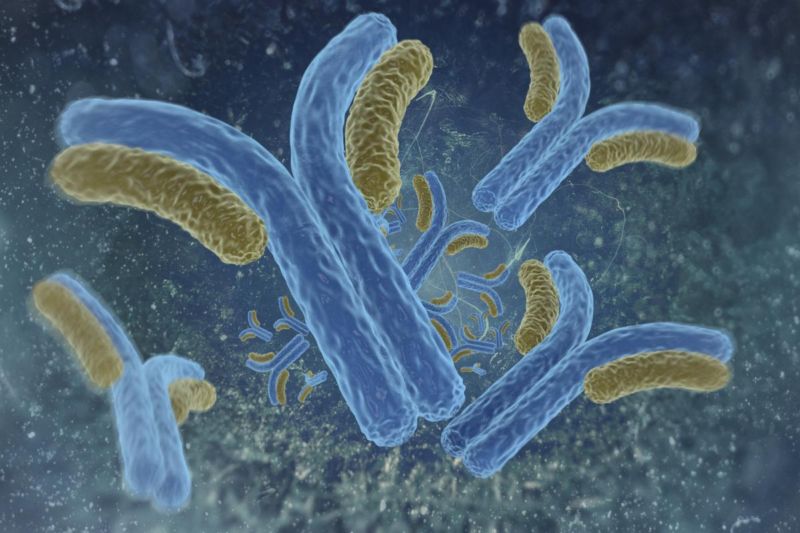
So, you know how some women of a certain age get kind of... well, thick around the middle? This “enhanced visceral adiposity” is just one of the many joys that accompany the end of fertility. Along with the constant reminder of our impending mortality, menopausal women also have to deal with bone loss, a reduced energy balance, and reduced physical activity. All of these effects stem from the drop in estrogen levels as the ovaries fail.
Follicle stimulating hormone (FSH), like other hormones produced in the pituitary, is ancient; it is evolutionarily conserved and found even in organisms like jellyfishes, corals, and sea anemones. In mammals, it helps fertility by promoting the synthesis and release of estrogen from the ovarian follicles. Levels of FSH rise during perimenopause as the ovaries fail, presumably as the body tries (and fails) to stimulate more estrogen production.
Scientists wondered if blocking FSH might therefore prevent some of the physiological effects associated with menopause. To do so, they generated an antibody that binds to mouse FSH, preventing it from interacting with its receptor and effecting any cellular changes.
When injected into mice, the antibody reduced both the obesity induced by a high fat diet and the enhanced adipocity that resulted from ovary removal. Both populations of mice also showed an increased energy expenditure and oxygen consumption—their cells acted younger. They also engaged in more physical activity, although this isn't what caused the increased energy expenditure. These results were seen independently in two labs at two different institutions.
To figure out where the energy was going, the researchers examined cells from a well-known mouse model of obesity, the ThermoMouse. They found that the anti-FSH antibody promoted a process known as “beiging.”
Not all fat cells are created equal. White fat cells are what we generally think of as “fat,” holding one huge fat droplet that takes up most of the volume of the cell. These cells and are used for energy storage and thermoregulation. Unfortunately, they also make us fat. Brown fat, counterintuitively, can actively suppress weight gain and the metabolic disorders associated with it because brown fat cells burn calories.
Beige fat cells, as their name suggests, are white fat cells that turn brownish. And that’s what’s happening here; blocking FSH induces some white fat cells to beige, after which they expend more energy.
The authors of the study write that “the therapeutic armamentarium for obesity currently pales in comparison with those for other health hazards of similar or lesser magnitude.” They have thus generated an antibody against human FSH which, when injected into mice, also reduces fat and promotes beiging. They hope that it will one day be used to treat not only women who want to shed their age-acquired spare tire but also those suffering from complications of obesity.
Nature, 2017. DOI: 10.1038/nature22342 (About DOIs).
reader comments
48